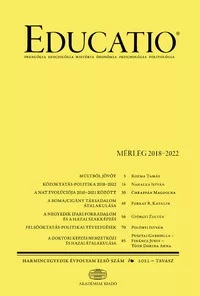Az OECD a magyar gazdaságpolitika alakításában: tanácsadó, támogató vagy korlátozó szerep?
OECD’s Role in Hungarian Economic Policy Making: Advisory, Supporting or Constraining?
Author(s): Péter Ákos BodSubject(s): Supranational / Global Economy
Published by: Akadémiai Kiadó
Keywords: policy advice; competition policy; tax policy; global regulation; Hungarian economic policy
Summary/Abstract: The OECD periodically surveys the economy and economic policy of its members, provides decision support and analysis. The main issue addressed here: in what ways and to what extent has the practice of professional collaboration and high-level policy dialogues influenced the Hungarian government and its economic policymaking practice. The OECD, given its mandate and its membership, is not, unlike the EU, an integration organization, and it does not allocate funds, unlike the World Bank and IMF, yet as policy advisor it has been influential, particularly in the years before EU accession. The profile of the collaboration between successive Hungarian governments and the OECD has changed a lot, due to shifts in the mandate of the OECD, but mostly because of changes in Hungary’s situation and government policy lines. The OECD has increasingly assumed global interest harmonization, norm-setting and regulatory roles; as a result, tensions have become common due to the Hungarian government’s pro-sovereignty stand and non-conventional economic policy measures since 2010.
Journal: Educatio
- Issue Year: 30/2021
- Issue No: 4
- Page Range: 583-597
- Page Count: 15
- Language: Hungarian

